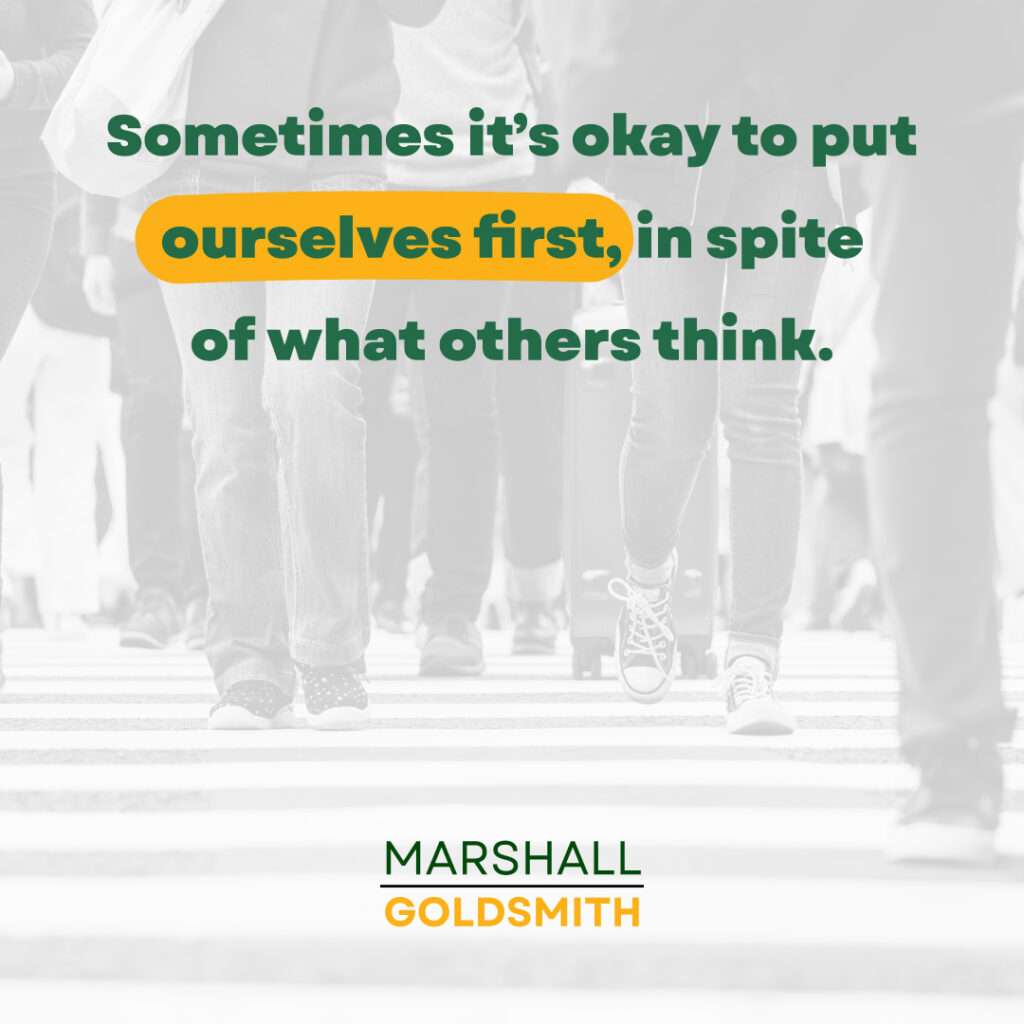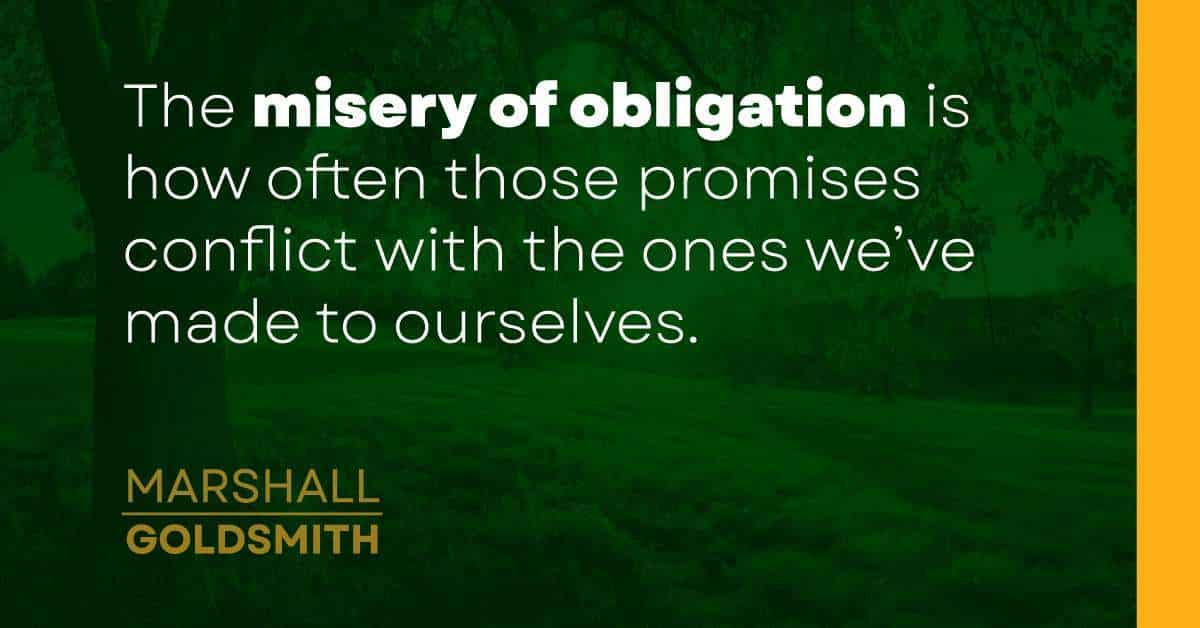Playing Favorites By Marshall Goldsmith There’s a reason I devote...
About a decade ago, someone I know decided to act for himself after years of working for others, and to try something new. He was given an opportunity through his newspaper, which was trimming its ranks. After taking a buyout at the newspaper where he’d been a long-time reporter, he decided to do something he’d long thought of: learn French and live in Paris.
He did his research, and managed to arrange an apartment exchange with a French couple who wanted to explore New York and get better at speaking English. He was all set. As he spoke about his plans to a friend who had a demanding job that he loved but who also wanted to change his life and become more fulfilled, his friend said to him, “That’s great for you. But I can’t. I have too many obligations.”
This ex-reporter, RJ, had obligations too, but he had realized that he’d put off too many things in life to let that stop him any longer. He had made too many decisions that were based on obligations rather than on the possibility of his own growth. His gamble paid off in deciding to take the leap and live in a foreign land. This ex-reporter now lives half the year in France, and is happier than ever with his choice. His obligations haven’t disappeared, but he has been able to manage them.
Too often we are undone by what we consider to be our obligations.

You might be familiar with a poignant scene in the 1989 Ron Howard film, Parenthood, starring Steve Martin as Gil Buckman, beleaguered father of three, and Mary Steenburgen as his serenely accepting wife, Karen. Late in the movie, after we learn that their oldest child, Kevin, has emotional issues and that Gil has just quit a job he hates, Karen informs Gil that she is unexpectedly pregnant with their fourth child. In the middle of a tense conversation about their new situation, Gil starts to leave to coach his son’s Little League team “into last place.” Karen asks, “Do you really have to go?” Halfway out the door Gil turns back to her with a crazed look and spits out, “My whole life is ‘have to.’”
The beauty of obligation is that it directs us to keep our promises to others, implied or explicit.
The misery of obligation is how often those promises conflict with the ones we’ve made to ourselves. In those moments, we tend to overcorrect, choosing between the extremes of selfless and selfish— and end up disappointing either ourselves or those who depend on us.
Obligation forces us to prioritize our responsibilities. It is a gray area, with few norms to guide us beyond the Golden Rule and “Do the right thing.”
In my experience, there are no rules for dealing with obligations – each situation is different.
Sometimes it’s proper and noble to be selfless. We join the family business instead of pursuing a more exciting career. We stay at a dull or hateful job for the paycheck that covers the family bills. We turn down the career-making job in another city because we don’t want to uproot the family. There’s fulfillment in honoring our obligations to our loved ones.
That said, sometimes it’s okay to put ourselves first, in spite of what others think. Such sacrifices and compromises can be agonizing and costly. They’re not easily made, but they are honorable and essential, too.
As the great journalist Herbert Bayard Swope (winner of the first Pulitzer Prize for Reporting in 1917) said,
“I can’t give you a surefire formula for success.
But I can give you a formula for failure:
Try to please everybody all the time.”

Adding Too Much Value Won’t Get You There By Marshall...
C-Suite Master Class: No, But, However By Marshall Goldsmith Continuing...
The Doerr Institute: Expanding the Market for Coaches By Marshall...
Making Leadership Development Part of the College Degree at Rice...
Sanyin Siang – Winner of the Thinkers50 Marshall Goldsmith Coaching...
Thinkers50 Marshall Goldsmith Distinguished Achievement Award in Coaching – Nominees...
Leading with Influence: What Is Influence360°? By Marshall Goldsmith Founder...
Are You a Dominator, Manipulator, Persuader or Influencer? By Marshall...
Leading with Influence: Redefining Modern Influence Part 2 By Marshall...
My mission is simple. I want to help successful people achieve positive, lasting change and behavior; for themselves, their people, and their teams. I want to help you make your life a little better. With four decades of experience helping top CEOs and executives overcome limiting beliefs and behaviors to achieve greater success, I don’t do this for fame and accolades. I do this because I love helping people!
As an executive educator and coach, I help people understand how our beliefs and the environments we operate in can trigger negative behaviors. Through simple and practical advice, I help people achieve and sustain positive behavioral change.